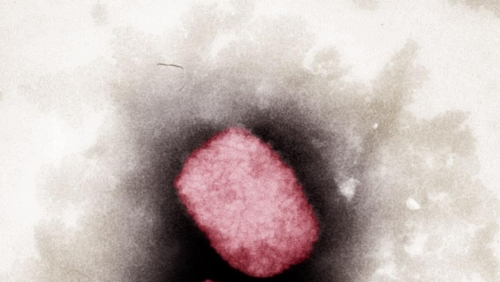India confirms its first monkeypox death
Agencies | New Delhi
The Daily Tribune – www.newsofbahrain.com
India's first confirmed monkeypox death occurred in the state of Kerala, a State government minister told reporters, on Monday.
The man, aged 22, died in the Thrissur district on Saturday, and his family had told officials that he had tested positive in a Gulf country on July 21.
According to local media, health officials rushed samples of the deceased to the National Institute of Virology, a regional centre in Alappuzha, for confirmation.
The doctors who treated the patient observed that the man’s symptoms were similar to monkeypox. According to one of the doctors, the patient did not have red marks or blisters when he was admitted. Later on, however, such symptoms started appearing on his body.
The family members have been asked to perform the last rites as per the WHO protocols.
India has reported five cases of monkeypox so far, of which three cases are from Kerala, one is from Delhi and one from Andhra Pradesh's Guntur.Following this, the central government is on an alert even as the count of infections in some other countries has risen.
NITI Aayog's member (Health) Dr V K Paul said that there is absolutely no need for any panic as the government has taken significant measures to keep the disease in check.
In an Interview with ANI, Dr Paul sought to assert that there was no need for any undue panic but added that it was still important that the country and the society stay vigilant."There is no need to panic, as of now, but one must report in time if they spot any symptoms, he said.According to World Health Organization (WHO), more than 18,000 cases have been reported from 78 countries.
"The monkeypox outbreak can be stopped if countries, communities and individuals inform themselves, take the risks seriously, and take the steps needed to stop transmission and protect vulnerable groups," said Dr Tedros, Director General, WHO on Thursday.
Monkeypox is a zoonotic disease caused by the monkeypox virus, which belongs to the same family of viruses that causes smallpox. The disease is endemic in regions like West and Central Africa but lately, cases have been reported from non-endemic countries too, according to the WHO.
Related Posts

